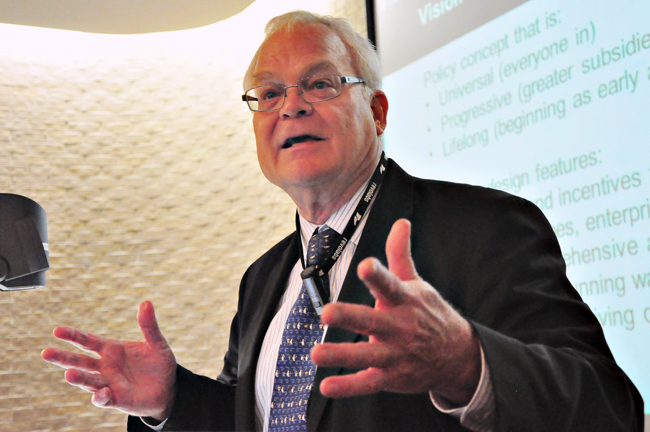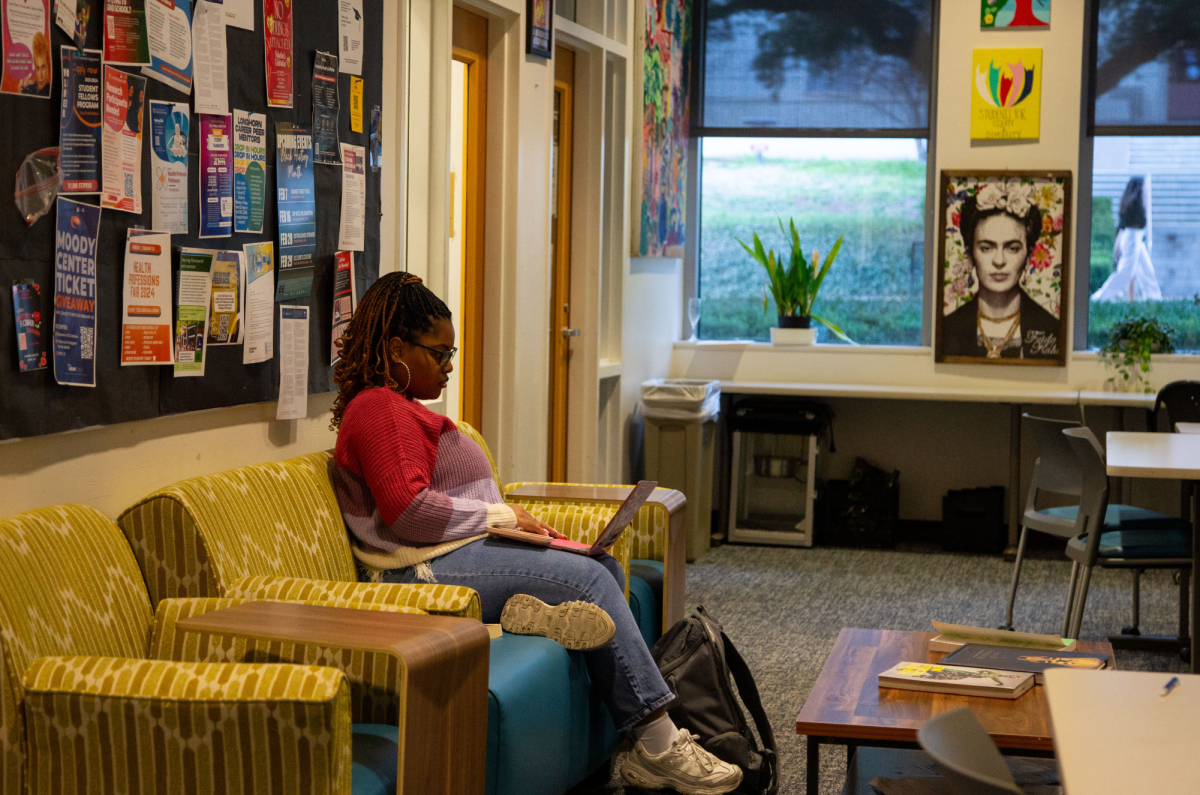Michael Sherraden, founding director of the Center for Social Development at Washington University in St. Louis, spoke about expanding a policy concerning savings accounts for children.
According to Sherraden, who spoke at the Thompson Conference Center, a public policy was tested in 2007 in which families from any social class could open Children Development Accounts, or CDAs, specialized savings accounts aimed at families with small children. He said the first purpose of this policy was to provide low-income families with opportunities to plan ahead for the future.
“Since this experiment started a year before a recession, the outcome was deeply affected,” Sherraden said. “However, after the recession, families kept testing the experiment, and, by now, those accounts have $1,400 saved.”
Sherraden said the vision is for the policy to be universal, meaning it would apply to families of all incomes, have greater subsidies for the poor and begin as early as birth and last a lifetime.
“The key design features of this policy is that it would have restrictions and incentives for social development, such as education, homes, enterprise and security,” Sherraden said. “It will also be widely available, comprehensive and automatic, like a community with running water to homes.”
Despite outside skepticism, Sherraden said the policy will be successful.
“We pay a lot of attention to our institutional features, which is giving people a system that works for them,” Sherraden said. “We think that this is a key to policy design, and we don’t think that financial problems can be entirely solved by educating individuals.”
After experimenting for several years, Sherraden said the policy has had a positive impact on its target demographic. He said financial intervention can affect a child’s long-term wellbeing.
“Children who start saving, or who have assets accumulation, are more likely to attend higher education,” Sherraden said.
He said there have been psychological and behavioral effects from early saving, such as an increase in feelings of hope and control, a better orientation for the child’s future and more effort coming from the child. Also, he said there could be a reduced possibility of depression among families by beginning the saving process early.
“What really surprises me about this research is the correlation regarding people starting the accounts and their expectations,” social work senior Elodie Coronado said. “Like he mentioned, there are better outcomes of children to feel more ambition.”
Sherraden said this new public policy has bipartisan support. Both the Democratic and Republican parties introduced legislation in the House and Senate in the early 1990s for Individual Development Accounts, similarly structured savings accounts which help individuals with a modest income save long-term.
“This policy seems like it has already been successful to many families,” Coronado said. “I wouldn’t be surprised if it becomes universal.”





















